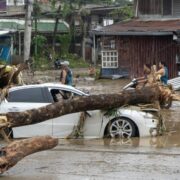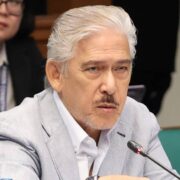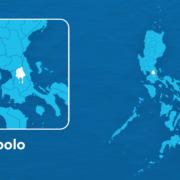Refocusing the Bicol River Basin Development Program

The unprecedented devastation caused by Severe Tropical Storm “Kristine” in Bicol has led President Marcos to consider revisiting the Bicol River Basin Development Program (BRBDP), which was initiated by his father, President Ferdinand E. Marcos Sr., through Executive Order No. 412 in 1973.
The EO created the Bicol River Basin Council (BRBC) in Camarines Sur to coordinate sectoral programs and projects of line agencies operating in the basin. An outstanding mandate of the BRBC was the introduction of “integrated area development” or IAD as a planning approach that purposefully integrates all sectoral activities to attain significant social change.
The late president may have thought of applying the novel geography-based planning approach on realizing the unfortunate location of the Bicol region that has rendered it vulnerable to typhoons, floods, landslides, volcanic eruptions, and droughts. He may have also noticed the potential of the 312,000-hectare basin as a fertile valley with rich volcanic soil, abundant underground aquifers, and a large farming community that can be developed to produce crops to supply the food needs of the region and even of Metro Manila.
A closer perusal of the program, however, would suggest that many projects were pursued simultaneously within short six-year periods, of which flood control was only one among the infrastructural and social development projects considered. In an evaluation done by Jeanne Frances Ilio in 2013 in the lower, middle, and upper sub-basins of the study area, she noted the following problems that plagued the IAD projects: poor design and supervision; inadequate coordination between the National Irrigation Administration (NIA) and the BRBDP; poor institutional development; implementation delays; cost overruns, and delayed payments of workers. The projects did have accomplishments, however, in terms of some irrigation systems constructed, farmers’ cooperatives formed, residents resettled, farmlands consolidated, secondary and feeder roads constructed, and social service-oriented programs set up. Flood control projects were also initiated in the form of dredging of waterways and the setting up of minor flood control structures. However, these were also limited in scope.
Decades later, according to Ilio, the BRBDP’s successor program, the Bicol River Basin Watershed Management Program was reportedly cast in the same mold, and was particularly faulted for its limited consultation with local government units in the region.
A more effective approach is really needed to deal with the number and ferocity of typhoons and the flooding that often visit the Bicol River basin, which have made it difficult to maintain the sectoral development project components of the BRBDP. Social scientists have pointed out that the vulnerability of households to natural disasters is reflected in the see-sawing of poverty incidence, which reflects the occurrence pattern of typhoons and flooding that destroy crops and businesses.
As part of the revisitation program of the BRBDP, it is good that Mr. Marcos is refocusing on flood control. Upon his instructions, Public Works Secretary Manuel Bonoan will conduct detailed flood control engineering designs in 2025, and start civil works in 2026. Presumed to be set up are dams, diversion canals, levees, retarding basins, and dredging. Among the dams, the Sabo Dam in Albay will be constructed first. But the secretary should also consider implementing NIA’s planned Libmanan-Cabusao Dam in Camarines Sur.
To be effective, the “hard” component of a flood control system should also be complemented with a “soft” component consisting of intensified reforestation of the vast denuded basin watersheds, and strict slope-based regulation of mining, silviculture, tourism, and grazing activities in the basin.
MELITON B. JUANICO,
melitonbjuanico@gmail.com
















